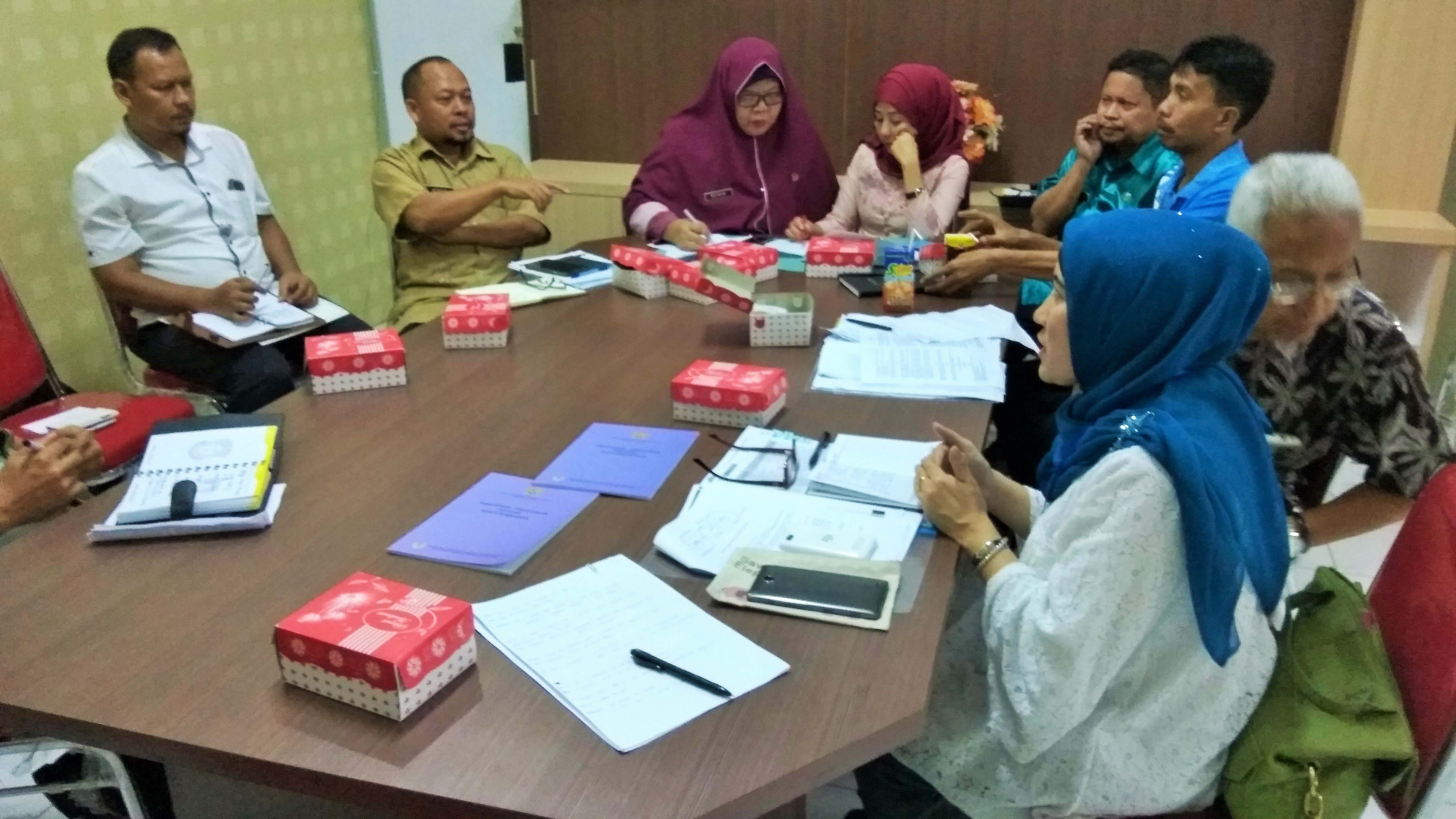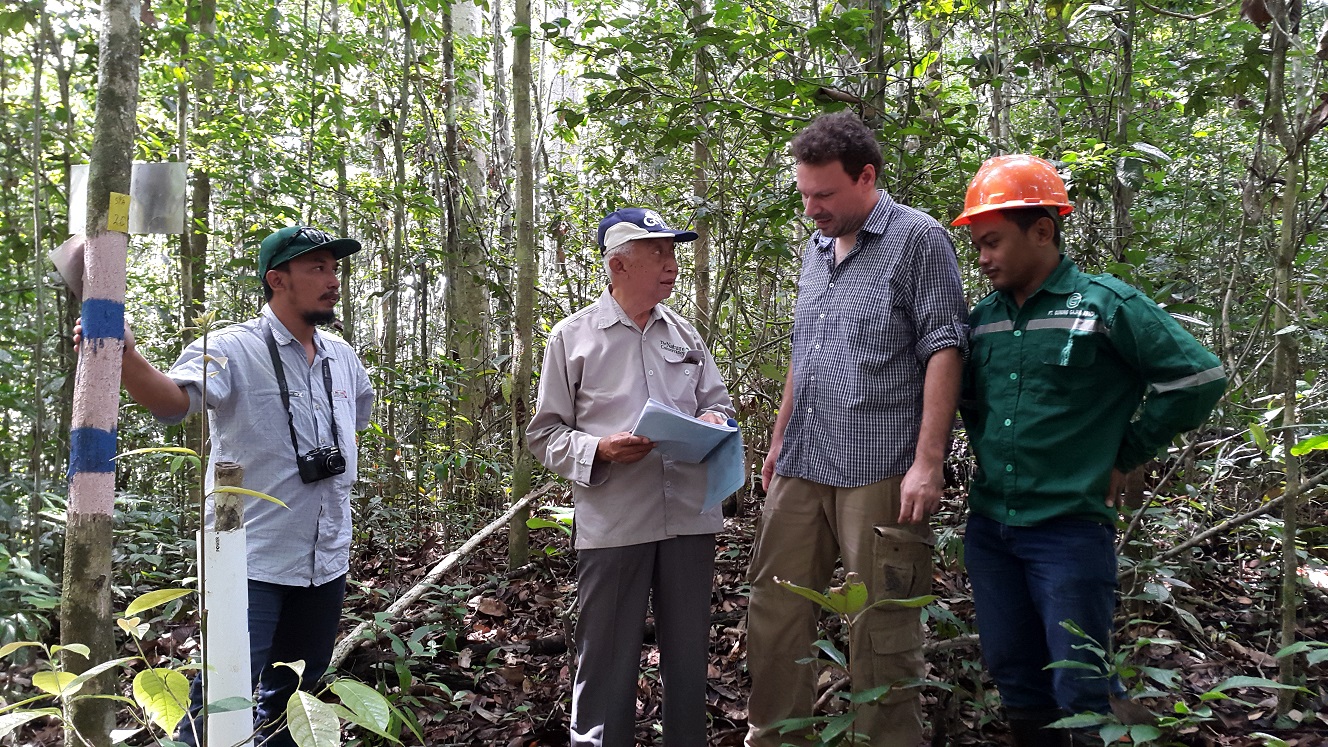FORCLIME
Forests and Climate Change ProgrammeTechnical Cooperation (TC Module)

Select your language

The Center for Planning and Development of Forestry Human Resources (Pusrenbang SDM), Ministry of Environment and Forestry and FORCLIME presented the results of a monitoring and evaluation assessment on the Young Professional Forester programme (Bakti Rimbawan) on October 17 in Jakarta. The meeting was attended by 25 representatives from the Ministry of Environment and Forestry, the Indonesian Ministry on National Development Planning (Bappenas), and FORCLIME.
The monitoring and evaluation assessment was conducted by a team of experts from Pusrenbang SDM and FORCLIME at nine Forest Management Units (Sungai Wain, Kapuas Hulu, Gularaya, Rinjani West, Canal Way, Bualemo, Jeneberang, Kerinci, and Wae Sapalewa). In addition to field visits, the monitoring and evaluation process also included an online survey. 645 young professional foresters and 27 FMU managers participated in the survey.
Findings from the assessment show that the young professional foresters provide a significant contribution to stimulating the operations of the FMUs. Moreover, it was reported that some of the young foresters even act as the "driving machine" within an FMU. However, it was also noted that the sustainability of this Young Professional Forester programme is vulnerable due to budget constraints, both at national and subnational levels.
The Head of Extension and Human Resource Development Agency (BP2SDM) said that this programme should be continued as these young foresters are seen as front liners for implementation of forest management programmes at the site level. Also, local governments should be involved more intensively in the further development of the Young Professional Forester programme.
For more information contact:
Edy Marbyanto, Strategic Area Manager, Human Capacity Development
The East Kalimantan Province Forestry Service supported by FORCLIME, The Nature Conservancy (TNC) and The Borneo Initiative (TBI) conducted a meeting to brief and refresh memories related to the concepts and policies of Sustainable Forest Management (SFM) for the Forest Management Units (FMUs) managers in East Kalimantan province, KPH Malinau (North Kalimantan) and KPH Kapuas Hulu (West Kalimantan) on 19-20 October 2016 in Samarinda, East Kalimantan. 30 participants attended the meeting, such as FMUs in East Kalimantan, FMU of Kapuas Hulu, FMU of Malinau, the Association of Indonesian Forest Concessionaires (APHI) of East Kalimantan, and Technical Implementation Units of the Ministry of Environment and Forests in Samarinda.
Some resource persons of the meeting include Mr Rudi Pryanto (Directorate of Production Forest Management Unit of the Ministry of Environment and Forestry), Mr Bambang Wahyudi (TNC), Mr Iwan K. Permadi (TBI), Mr Tunggul Butarbutar (FORCLIME), Mr M. Fajar (Peterson Control Union), and Prof. Soeyitno Sudirman (Practitioner of SFM).
Awareness to implement Sustainable Forest Management (SFM) practices need to involve all parties in forest management. Such awareness includes aspects of compliance with laws and regulations, production, environmental, social, as well as the aspect of business strategy.
For further information, please contact
Tunggul Butarbutar, Strategic Area Manager, FMU development
Suprianto, Technical Adviser, FMU development

FORCLIME continues cooperation and capacity development in the field of SFM through forest certification (SVLK/ PHPL/ FSC) in the FMU Berau Barat by collaborating with The Borneo Initiative (TBI) and The Nature Conservancy (TNC). The team conducted site visits in three forest concessions within the FMU Berau Barat from September 28th until October 7th. The three forest concessions visited are PT. Utama Damai Timber (UDIT), PT. Wana Bhakti Utama (WBPU) and PT Aditya Kirana Mandiri (AKM).
The goal of fostering SFM and FMU development is tackled by intensively working together with sustainability certifiers aiming at involving local communities and the private sector. The activities include technical trainings, social impact studies and community participation. The studies, trainings and activities, that aim to being awarded one of the above mentioned forest certifications, are being monitored and supervised by a certification coach. Depending on the development of the forest concessions and their experience in SFM, the process of receiving the SFM forest certification varies individually. Some decisive factors include experience and start-up investment (e.g. forest and basic infrastructure in virgin natural production forests), which means there are major variations regarding the duration of operations in the concessions; some operate for more than 30 years already whereas others started operations only 5 years ago.
In terms of forest operations and Reduced Impact Logging to reduce emissions (RIL-C), all three concessions received the full RIL training. This has resulted in at least 25% emission reduction on 136,000 ha, according to the TNC Verified Carbon Standard (VCS) methodology.
For further information, please contact:
Tobias Goedde, Strategic Area Manager for Sustainable Forest Management
Suprianto, Technical Advisor for FMU development, Berau office


